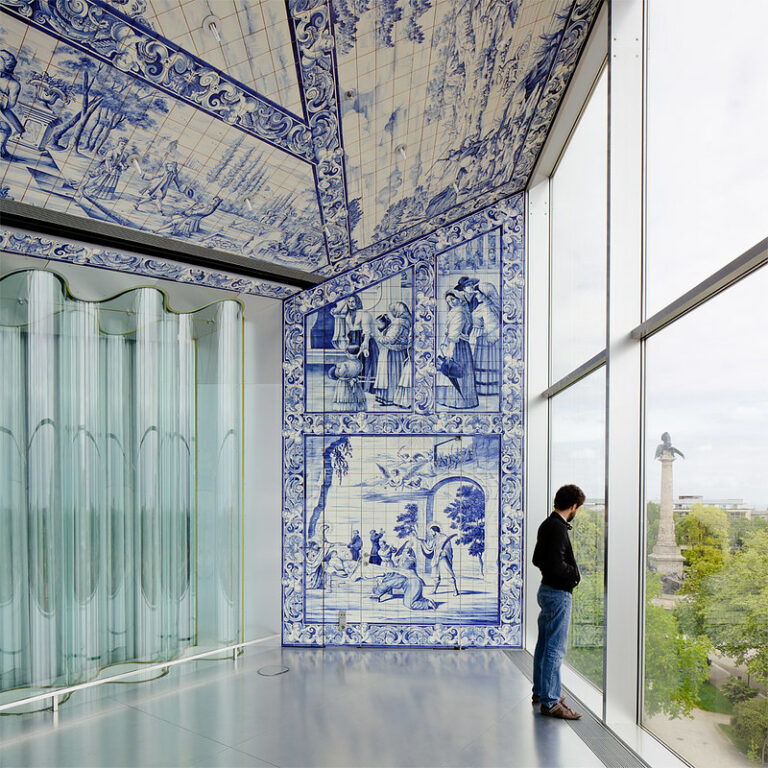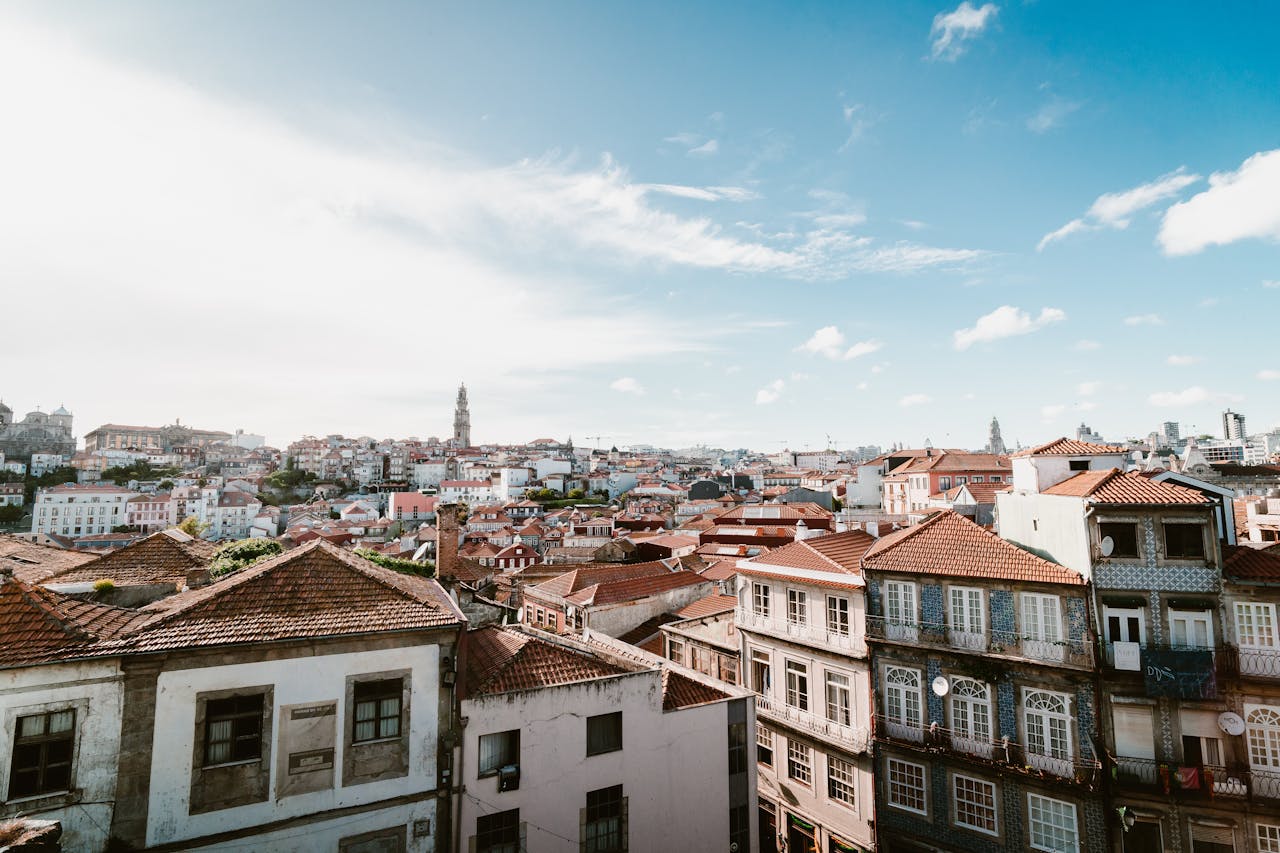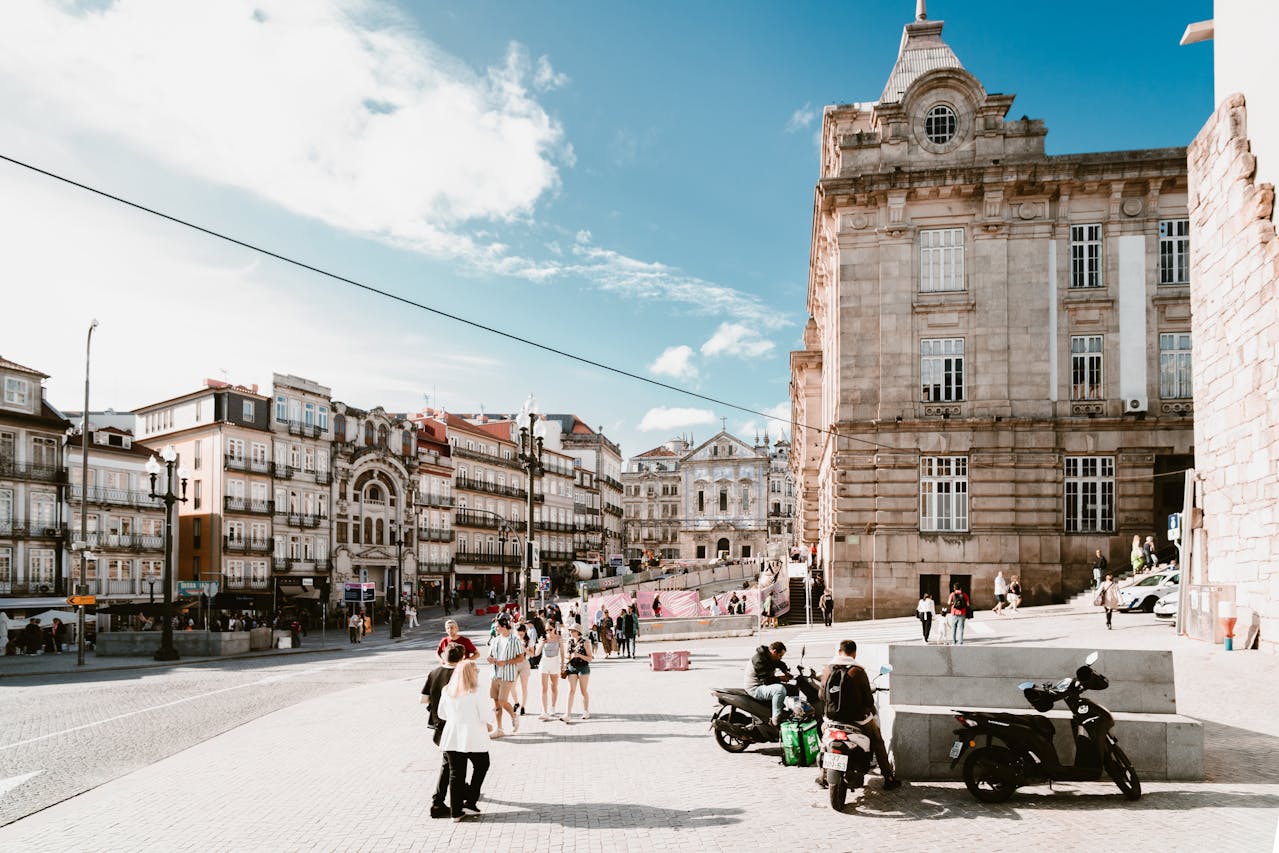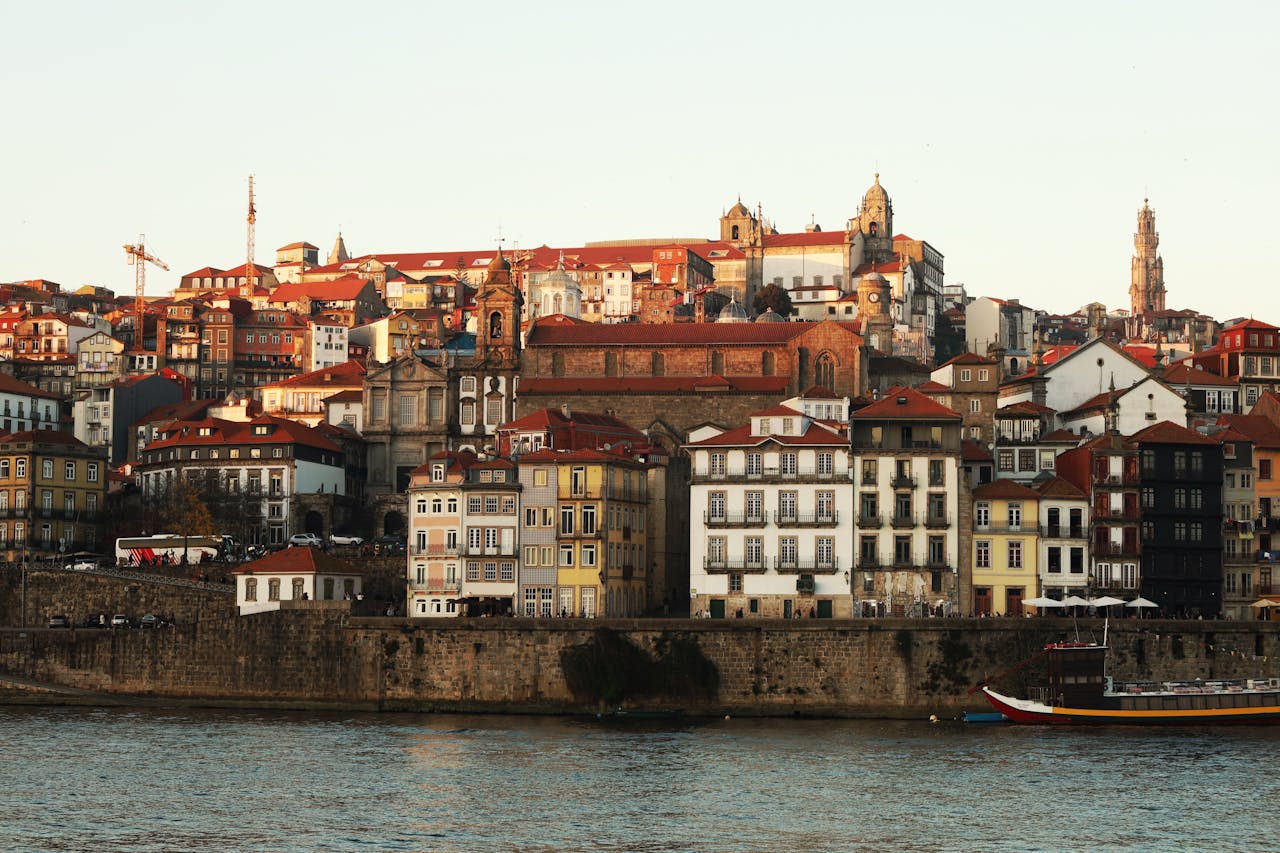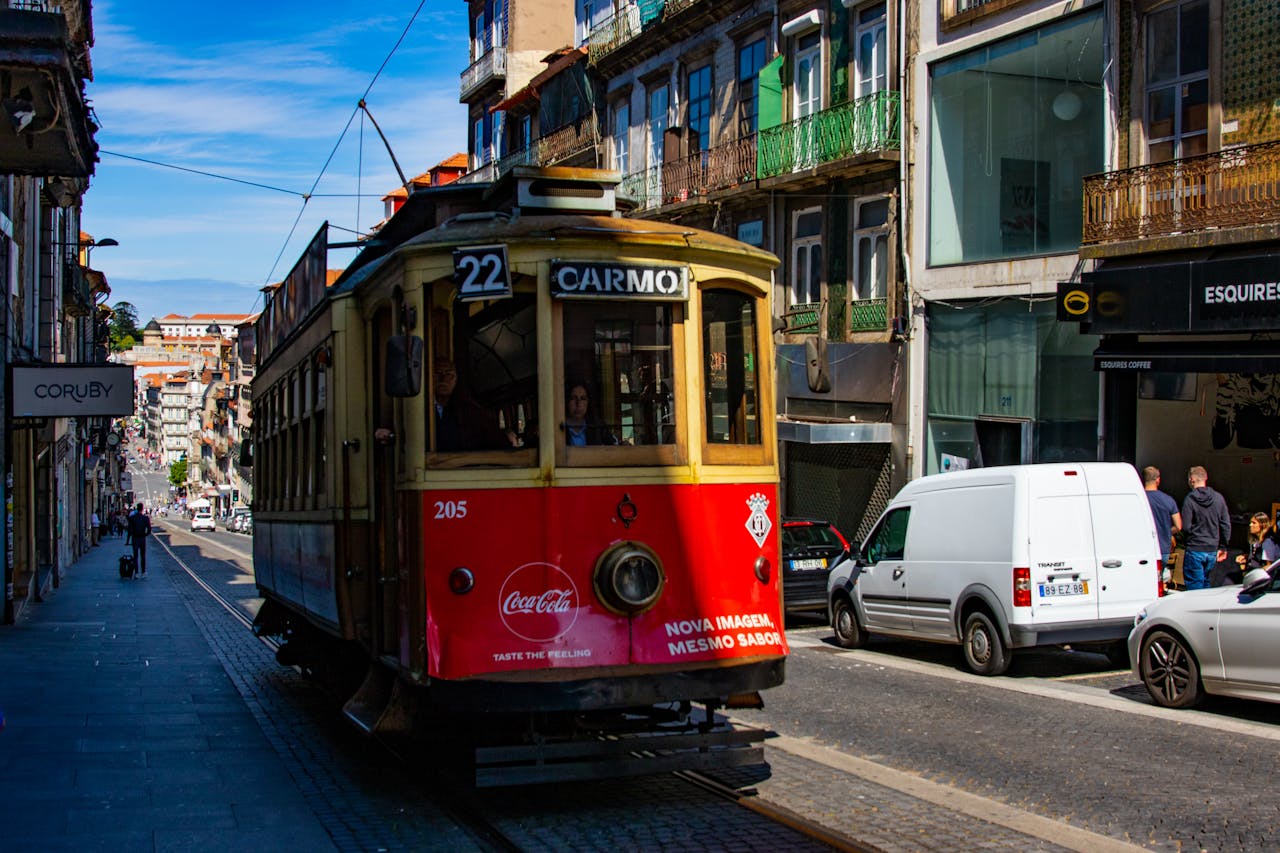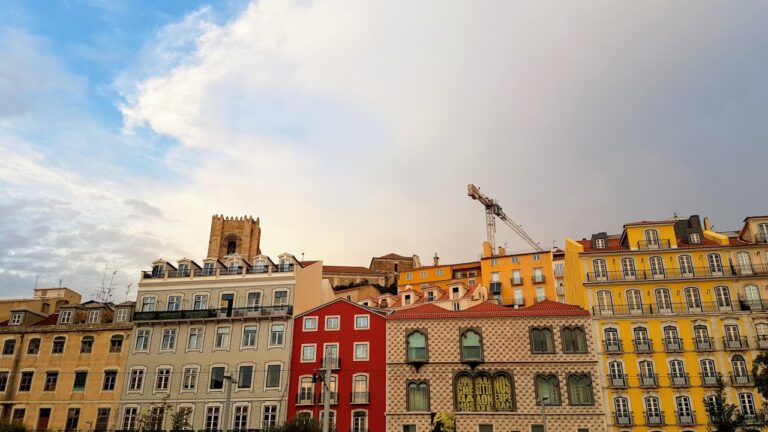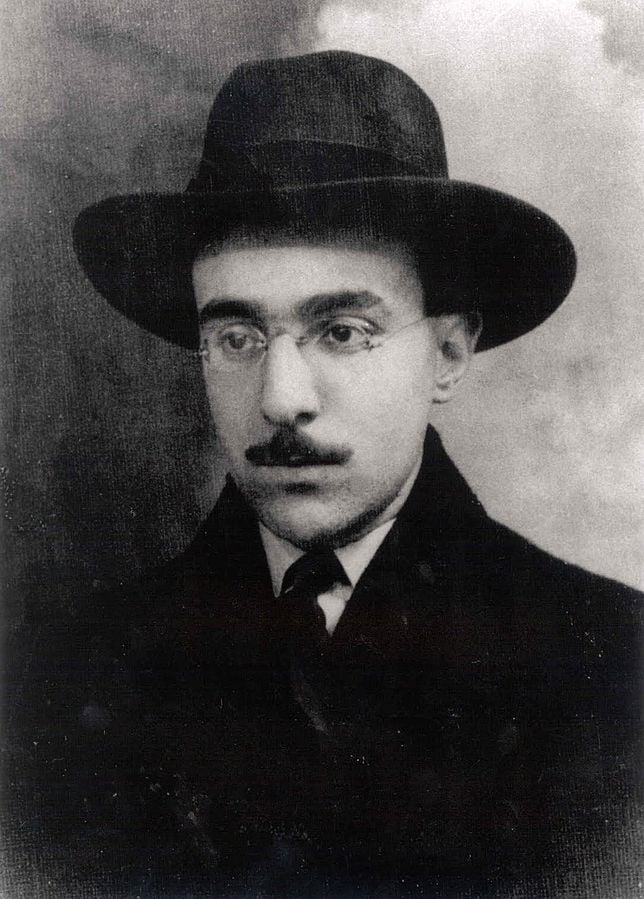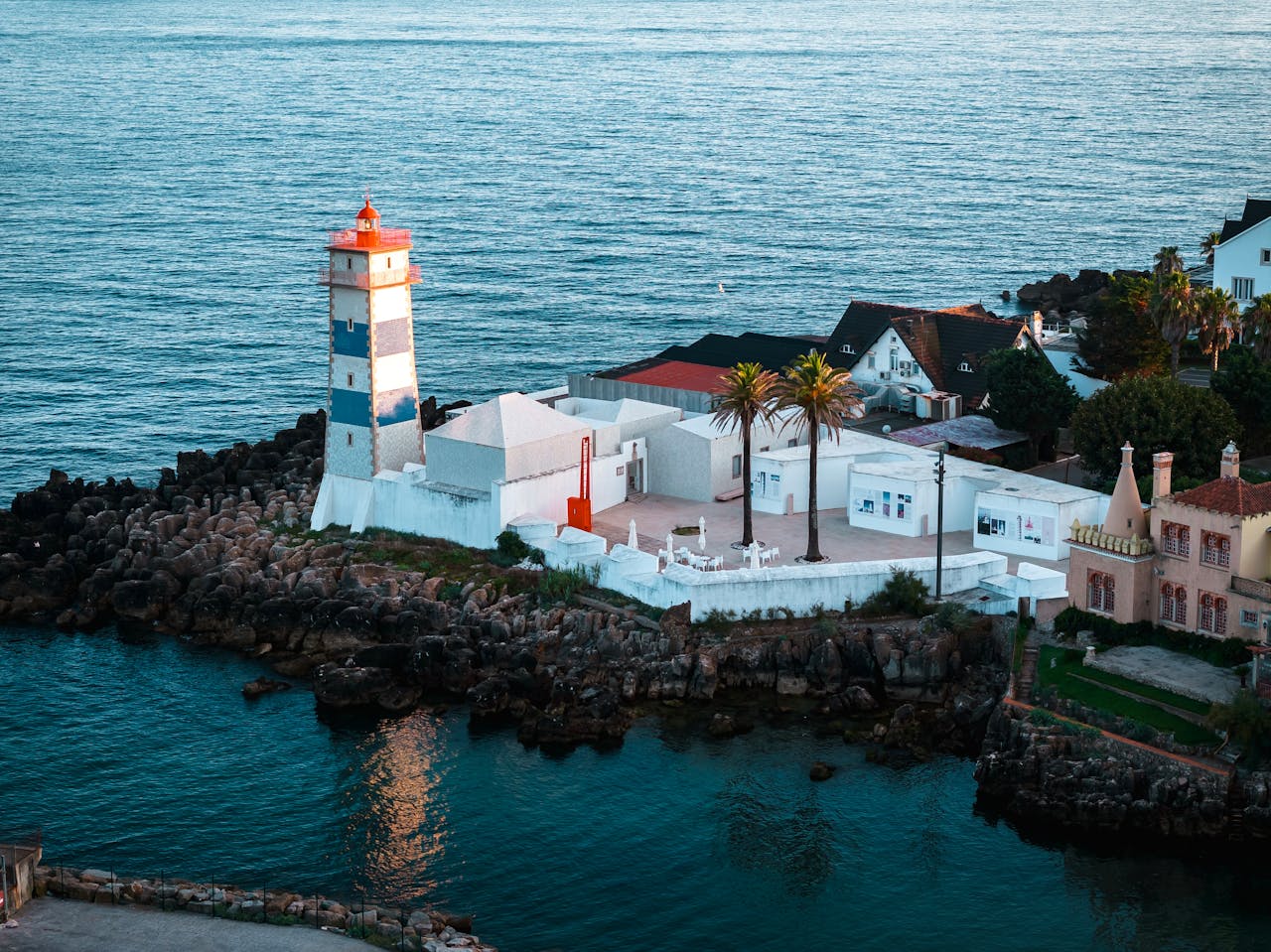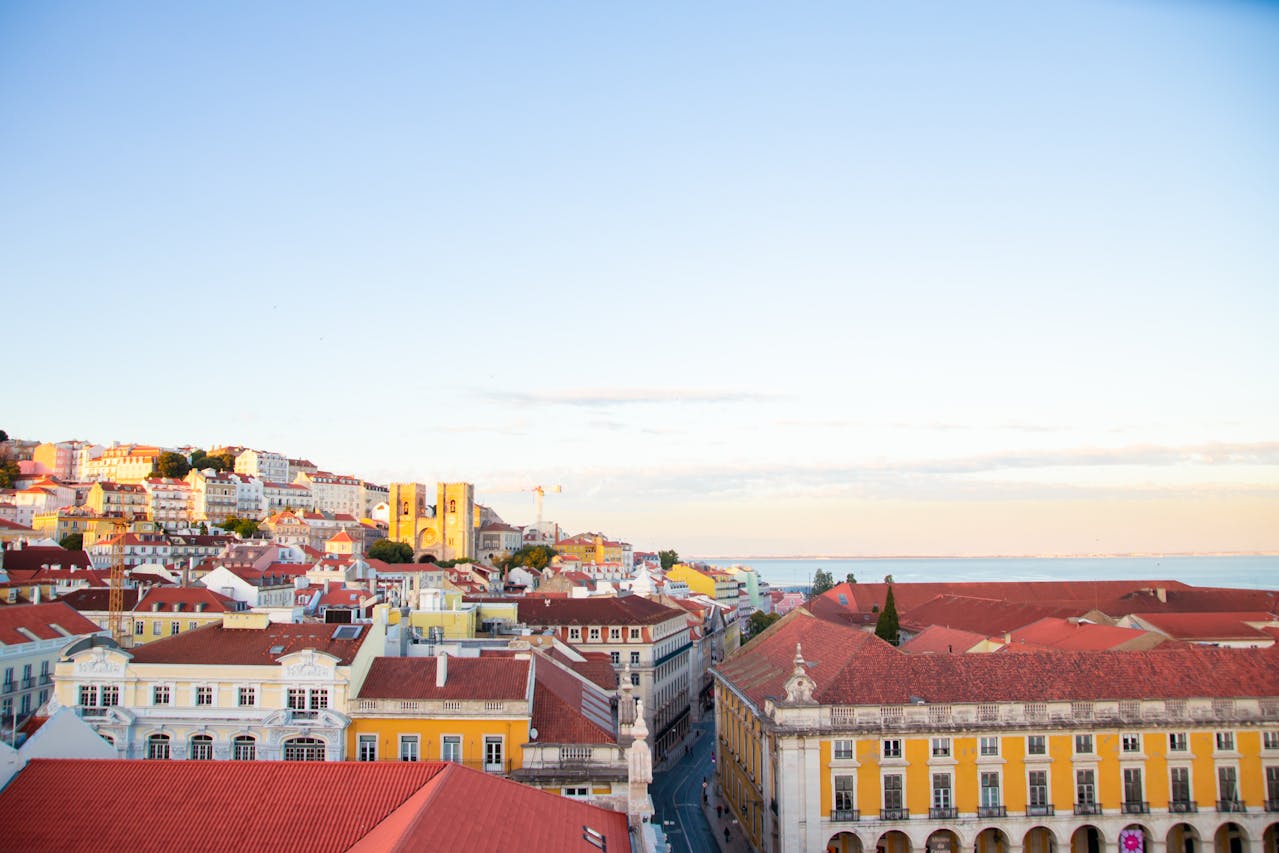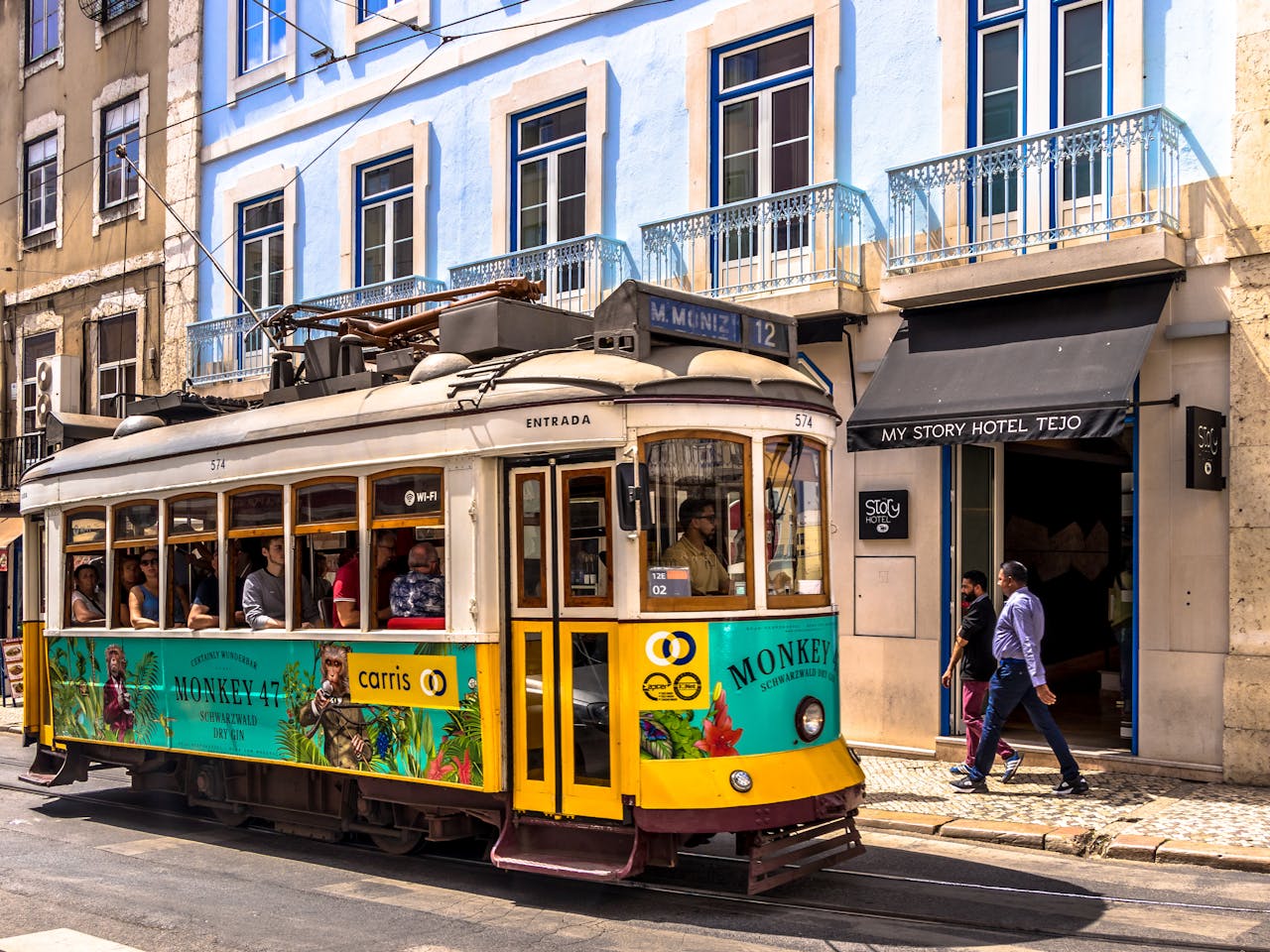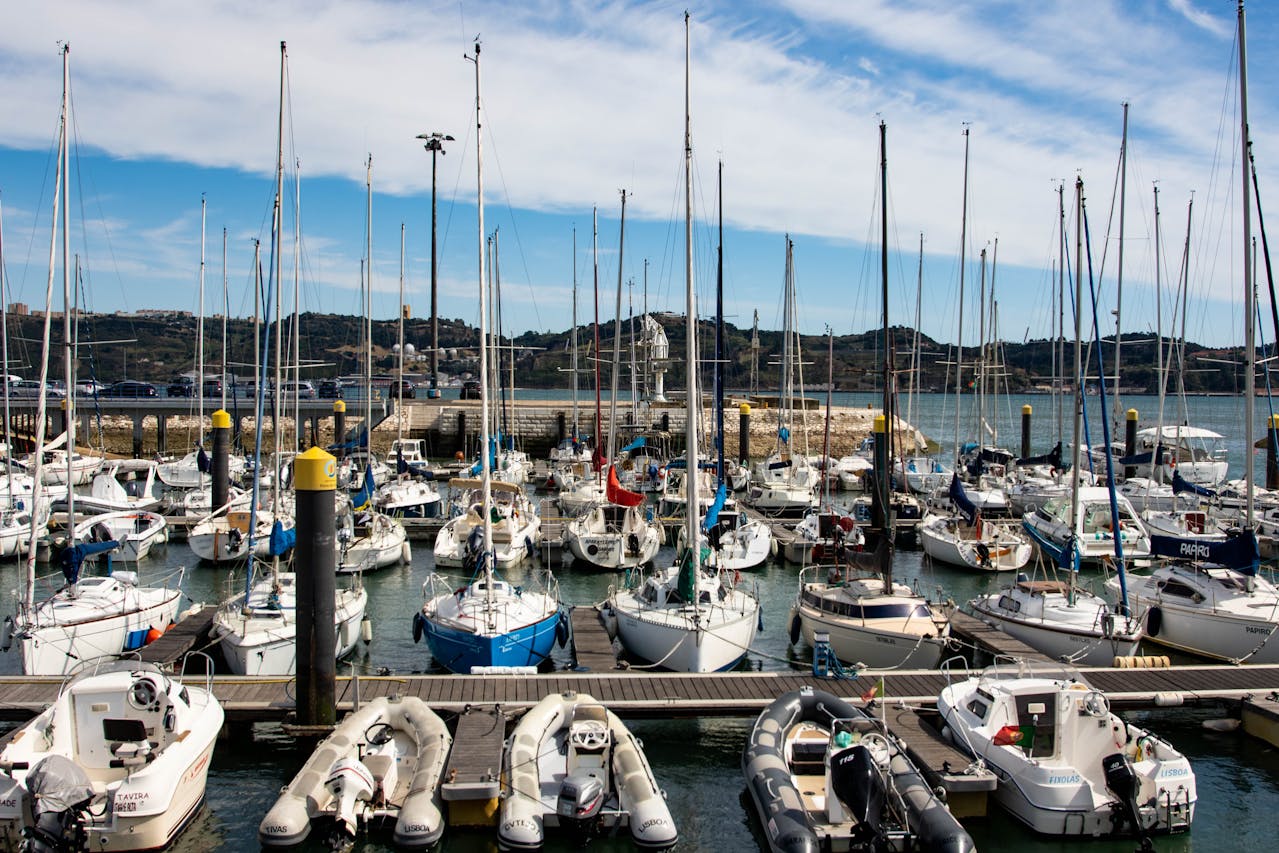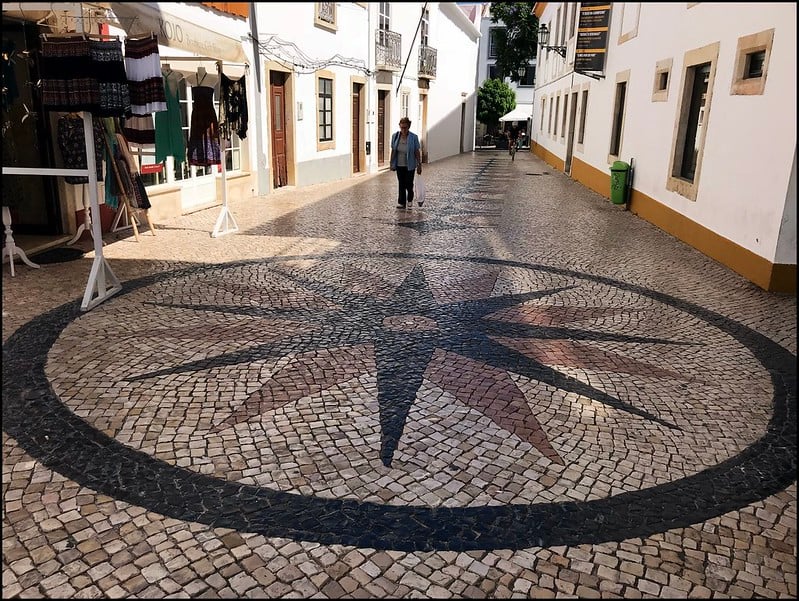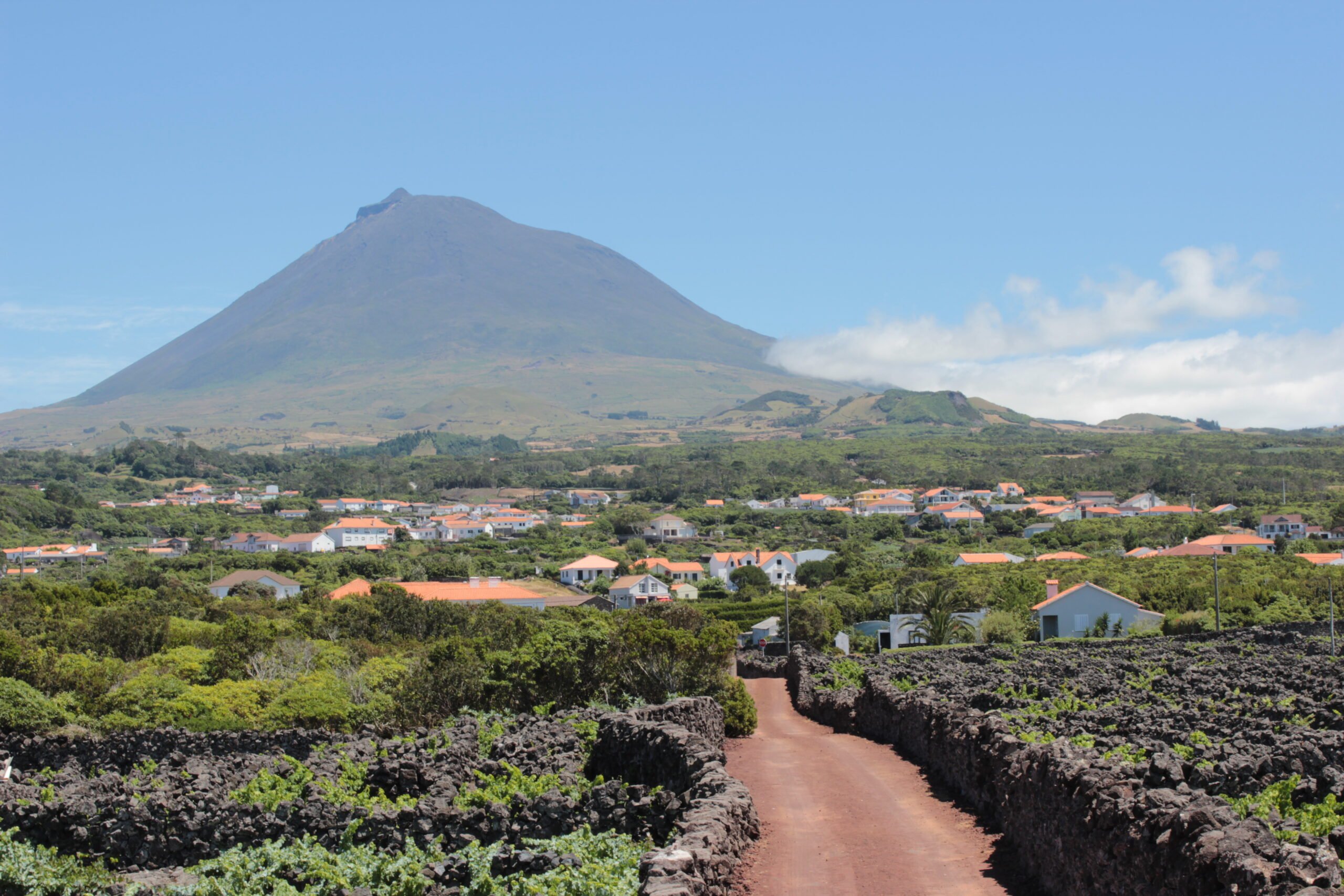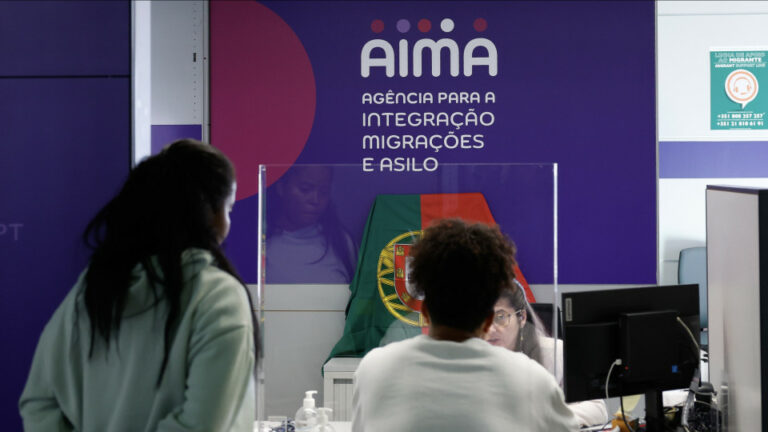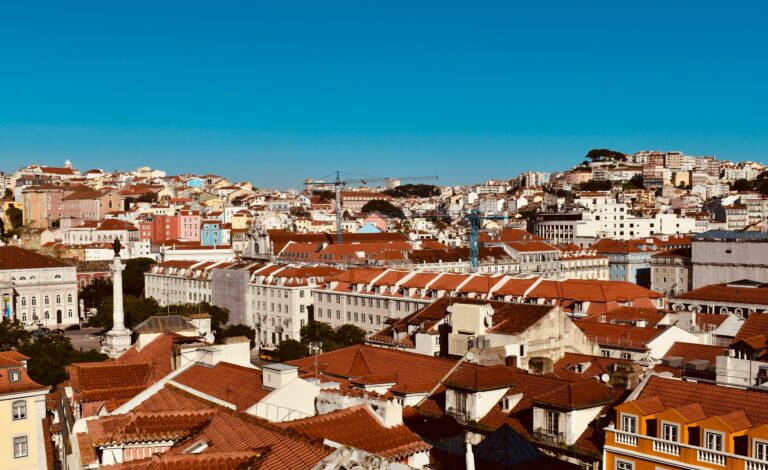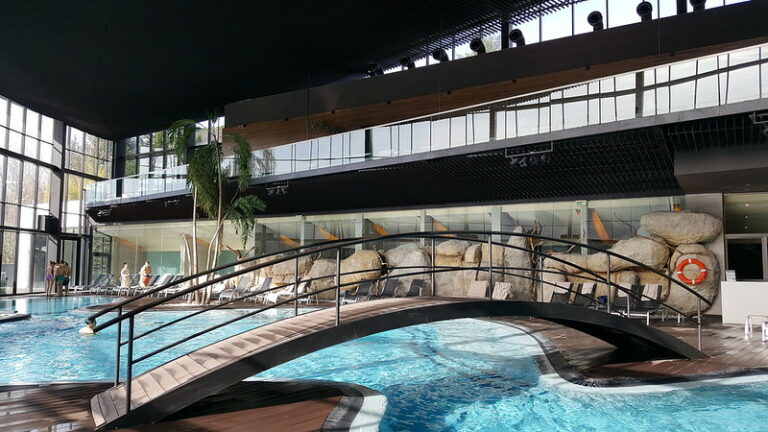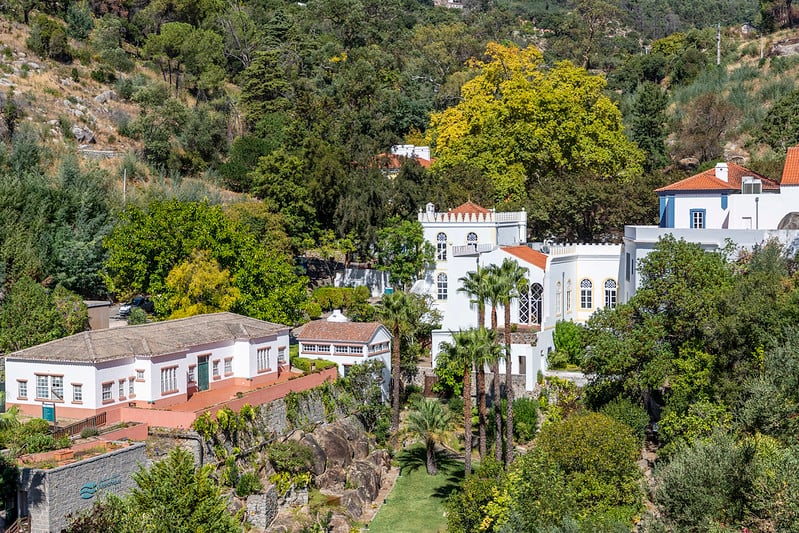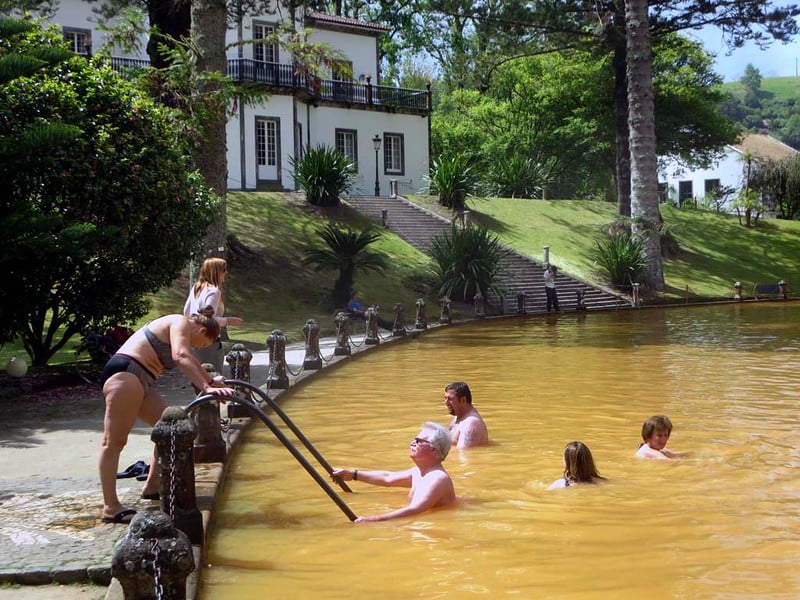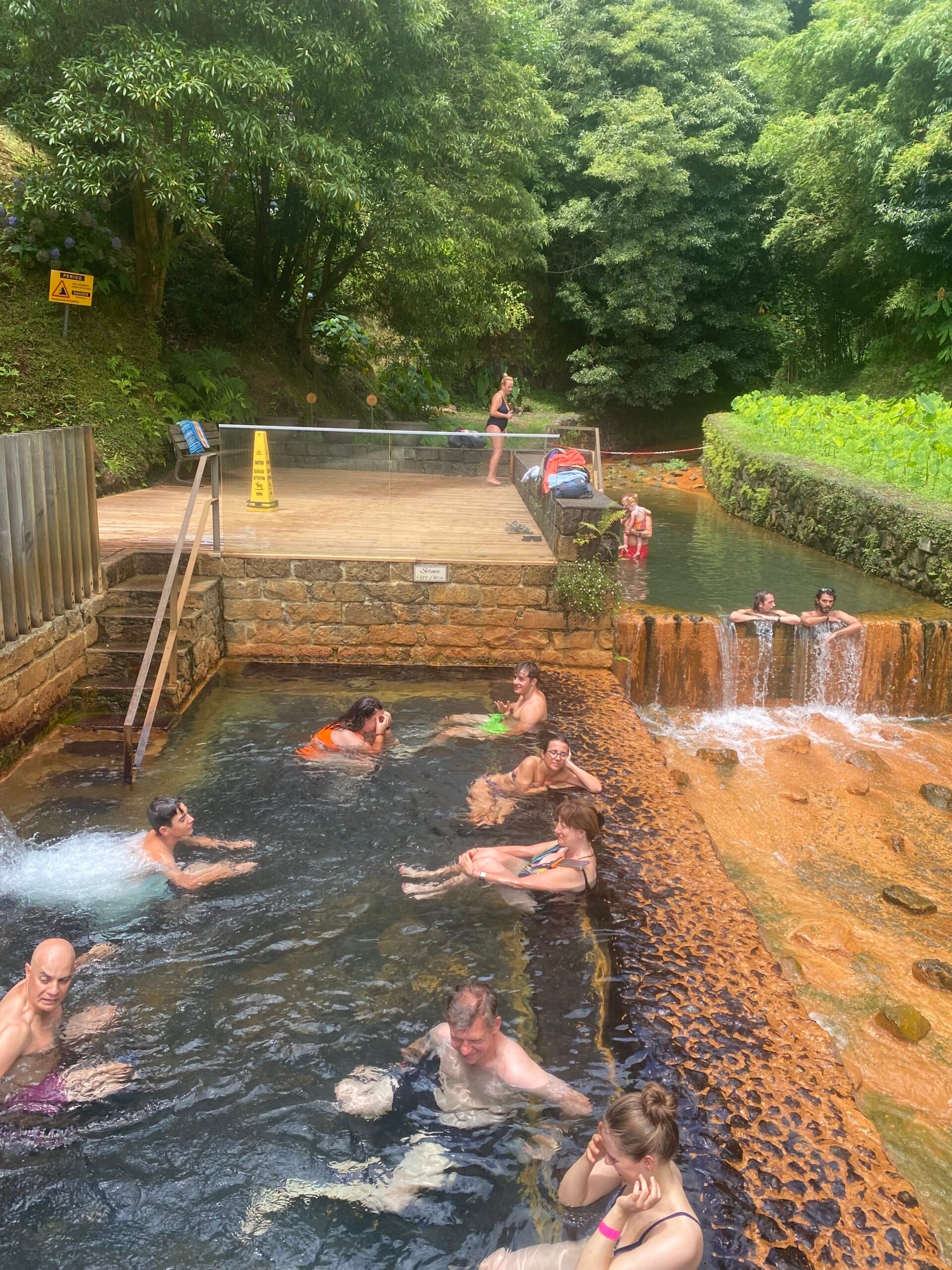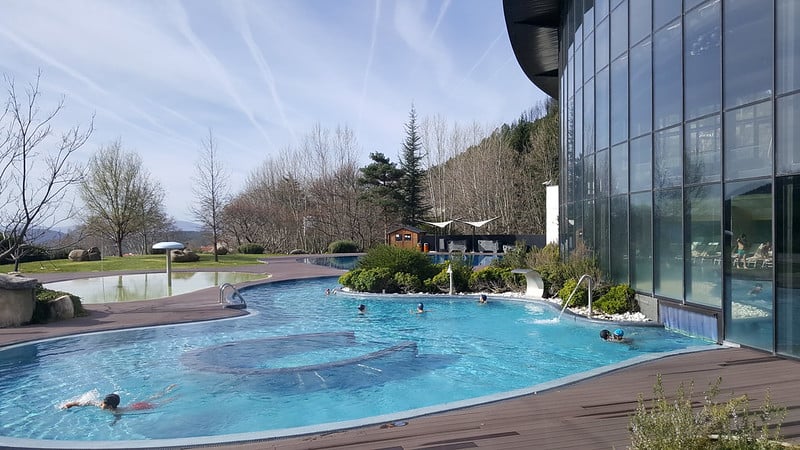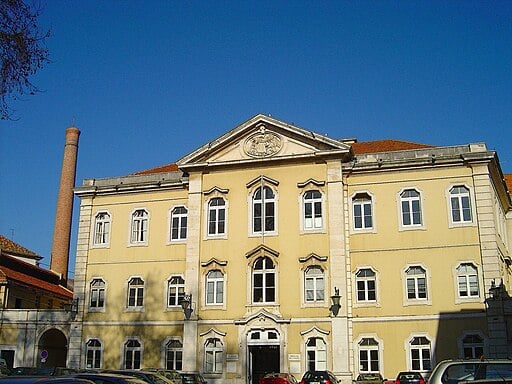Beyond its castles, beaches, and sunshine, Portugal has more recently emerged as a creative hub for street art, with Lisbon and Porto transformed by talented artists who etch social commentary and everyday scenes onto its walls. These artists bring to life the stories, struggles, and dreams of the Portuguese people. Here are five of the most influential street artists in Portugal, whose works challenge and inspire those who encounter them.
1. Vhils
Alexandre Farto, known in the street art world as Vhils, has gained international recognition for his unique approach to street art, which involves carving into walls rather than painting on them. Growing up in Seixal, a small riverside town in the Lisbon metropolitan area, Vhils was deeply influenced by the rapid urban development that characterized Portugal in the 1980s and 1990s. His fascination with history embedded in the buildings of the cities led him to develop his signature technique using chisels, knives, hammers, and even explosives to break walls, exposing the layers beneath the surface of a city.
By chiseling away at plaster, concrete, and brick, Vhils reveals poignant portraits that seem to emerge from the very fabric of the city. His work is a powerful commentary on how the built environment absorbs and reflects social changes, capturing the essence of time and memory.
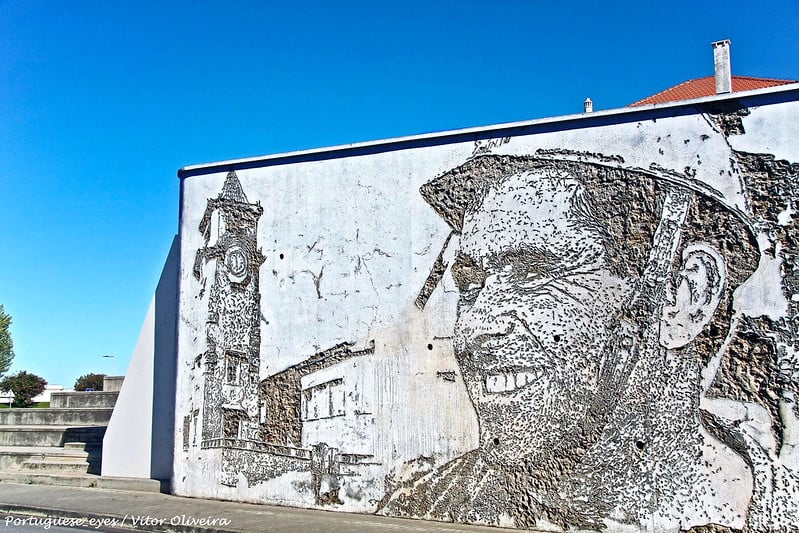
Vitor Oliveira, Flickr
Vhils’ art has been celebrated worldwide, with exhibitions in major cultural institutions such as the Center Pompidou in Paris and the Barbican Centre in London. Some of his most notable works include the tribute to Amália Rodrigues, the legendary Fado singer, in Lisbon, where he collaborated with the city’s paving team to create a stunning piece in Portuguese cobblestone. Another significant work is his mural at São João Hospital, which honors the healthcare workers who fought against the COVID-19 pandemic. Vhils’ ability to merge art with social commentary has made him one of the most influential street artists of his generation, and his work continues to provoke and inspire across the globe.
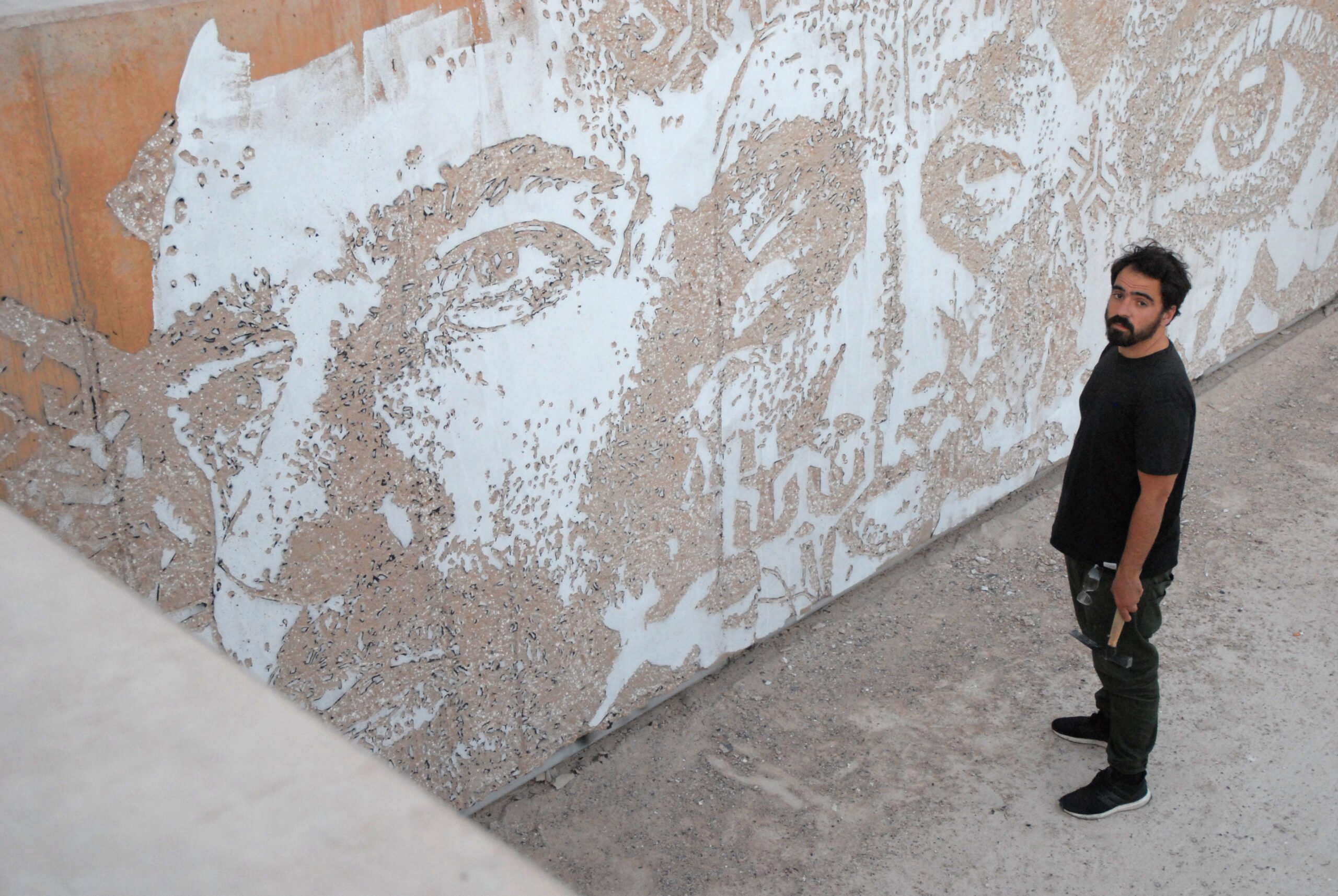
2. Bordalo II
Artur Bordalo, better known as Bordalo II, is a trailblazer in the world of “trash art,” where he transforms discarded materials into stunning and meaningful sculptures. Born in Lisbon in 1987, Bordalo II was deeply influenced by his grandfather, Artur Real Bordalo, a painter. This familial connection to art, combined with his exposure to the environmental degradation caused by urban waste, led Bordalo II to create art that not only dazzles visually but also carries a powerful message about pollution and consumerism. His sculptures, often depicting animals endangered by human activity, are constructed from materials like scrap metal, old tires, and plastic waste—materials that are contributing to the destruction of the very creatures he portrays.
Bordalo II’s work is a vivid reminder of the consequences of human consumption. His “Big Trash Animals” series, which can be found in cities across the world, is particularly striking. These larger-than-life creatures, made entirely from urban waste, serve as a haunting reflection of how our throwaway culture is threatening the natural world. In addition to his environmental activism, Bordalo II has been involved in social campaigns, such as supporting refugees through his art. Despite his global success, Bordalo II remains rooted in Lisbon, where he continues to collect discarded materials from the streets to create his next impactful piece. His work is more than art; it’s a call to action for a more sustainable and conscious way of living.
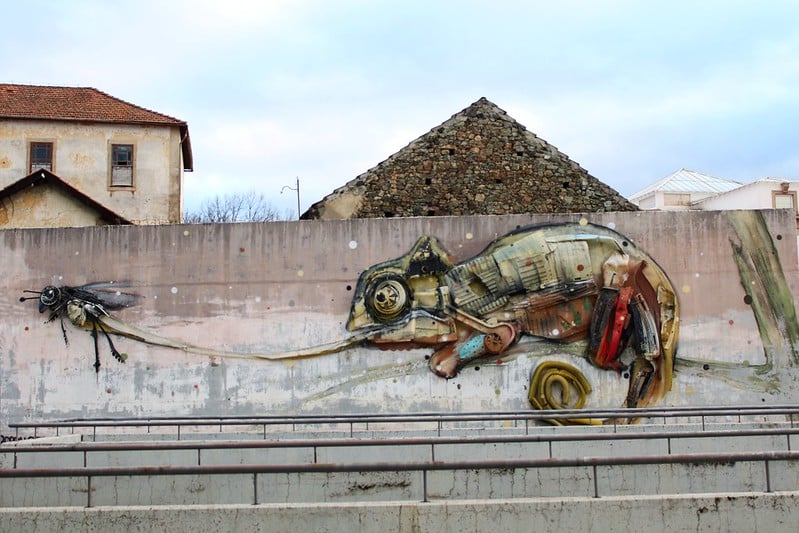
3. Daniel Eime
Born in 1986, Daniel Eime has carved out a distinctive niche in the street art world with his intricate stencil work, which often features hauntingly beautiful black-and-white portraits. Eime’s journey into the world of art began early, with his passion for drawing leading him to explore various forms of street art as a teenager. Initially involved in graffiti, Eime soon became captivated by the possibilities of stencil art, which he has since mastered and evolved. His work is characterized by a combination of stencil techniques with dripping effects and a touch of realism. He creates portraits that are both striking and emotionally resonant.
Eime’s art has been showcased in numerous countries, including England, France, Italy, and Switzerland, where his evocative portraits continue to garner attention. One of his most famous works, “Mira,” is a mural in the Miragaia neighborhood of Porto that depicts a local resident. This piece is a testament to Eime’s ability to capture the essence of his subjects, infusing urban spaces with a sense of intimacy and connection. His work offers a deep exploration of human emotion and identity. As Eime continues to push the boundaries of stencil art, he remains a key figure in the Portuguese street art scene with a growing international reputation.
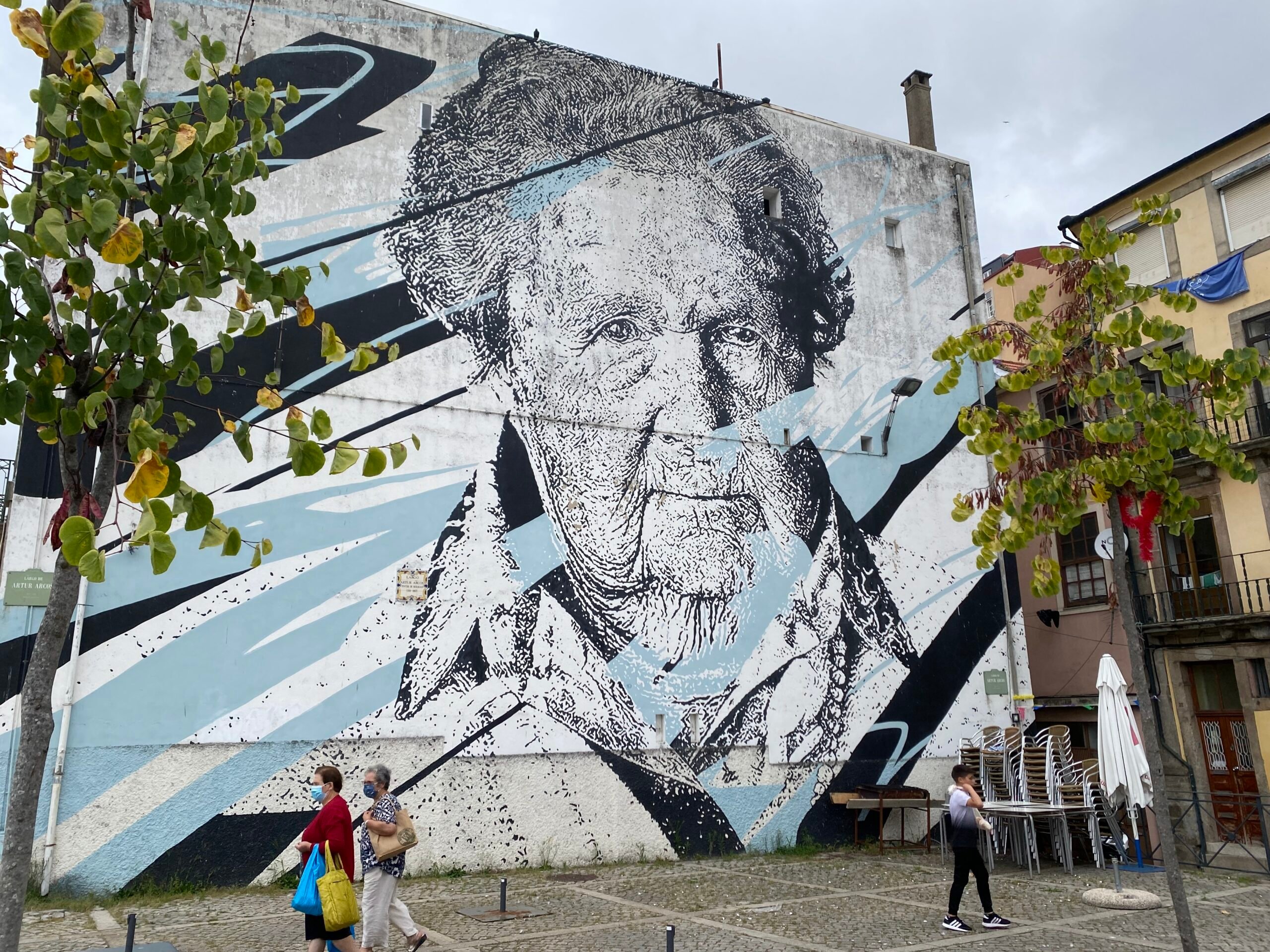
4. Frederico Draw
Frederico Draw, born in Porto in 1988, is a street artist known for his large-scale murals that focus on the human figure and bodily expression. With a background in architecture, Draw approaches his art with a meticulous eye for detail and a deep understanding of space. He uses spray cans as if they were brushes and carefully crafts realistic portraits that convey powerful emotions and stories. Draw’s work often features anonymous faces and portraits of ordinary people, which he transposes onto urban spaces and imbues with new meaning and life.
One of Frederico Draw’s most iconic works is the mural of his grandfather near the Luís I Bridge in Porto. This piece, which depicts his grandfather extending a hand in welcome, is a touching tribute to both his family and the city’s spirit of hospitality. Despite its personal nature, the mural has resonated widely with both locals and tourists and become a beloved landmark. As a member of the RUA collective, Draw is actively involved in projects that aim to revitalize urban spaces through art. His work beautifies the city while at the same time creating a dialogue with its inhabitants, making him a central figure in the transformation of Porto’s urban landscape.
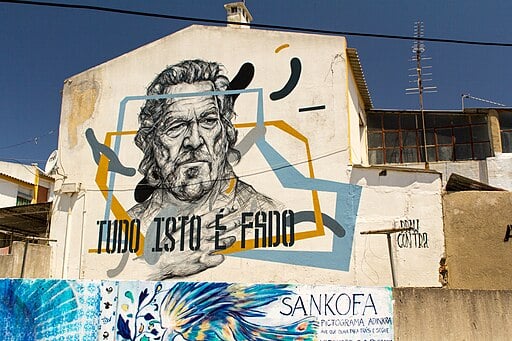
5. Mr. Dheo
Mr. Dheo, a prominent street artist from Porto, is renowned for his photorealistic graffiti that blends realism with graphic elements. Born in 1985, Mr. Dheo developed his skills at a young age as a self-taught artist. His early exposure to graffiti at the age of fifteen sparked a lifelong passion for street art, and over the years, he has refined his techniques to create highly detailed and lifelike portraits. Mr. Dheo’s work is characterized by its meticulous attention to detail. He often incorporates complex shading and textures that give his pieces a three-dimensional quality.
Throughout his career, Mr. Dheo has created works in over 50 cities around the world, from Miami to Johannesburg, but some of his most iconic pieces can be found in his hometown of Porto. His mural “Angels on Earth,” created during the COVID-19 pandemic in Vila Nova de Gaia, is a powerful tribute to healthcare workers and became a viral sensation, featured in major international publications. Mr. Dheo’s ability to capture the human spirit in his art has earned him a global following, and his work continues to evolve, pushing the boundaries of what street art can achieve. Whether in Porto or abroad, Mr. Dheo’s murals are powerful statements that make a long-lasting impression on the viewer.
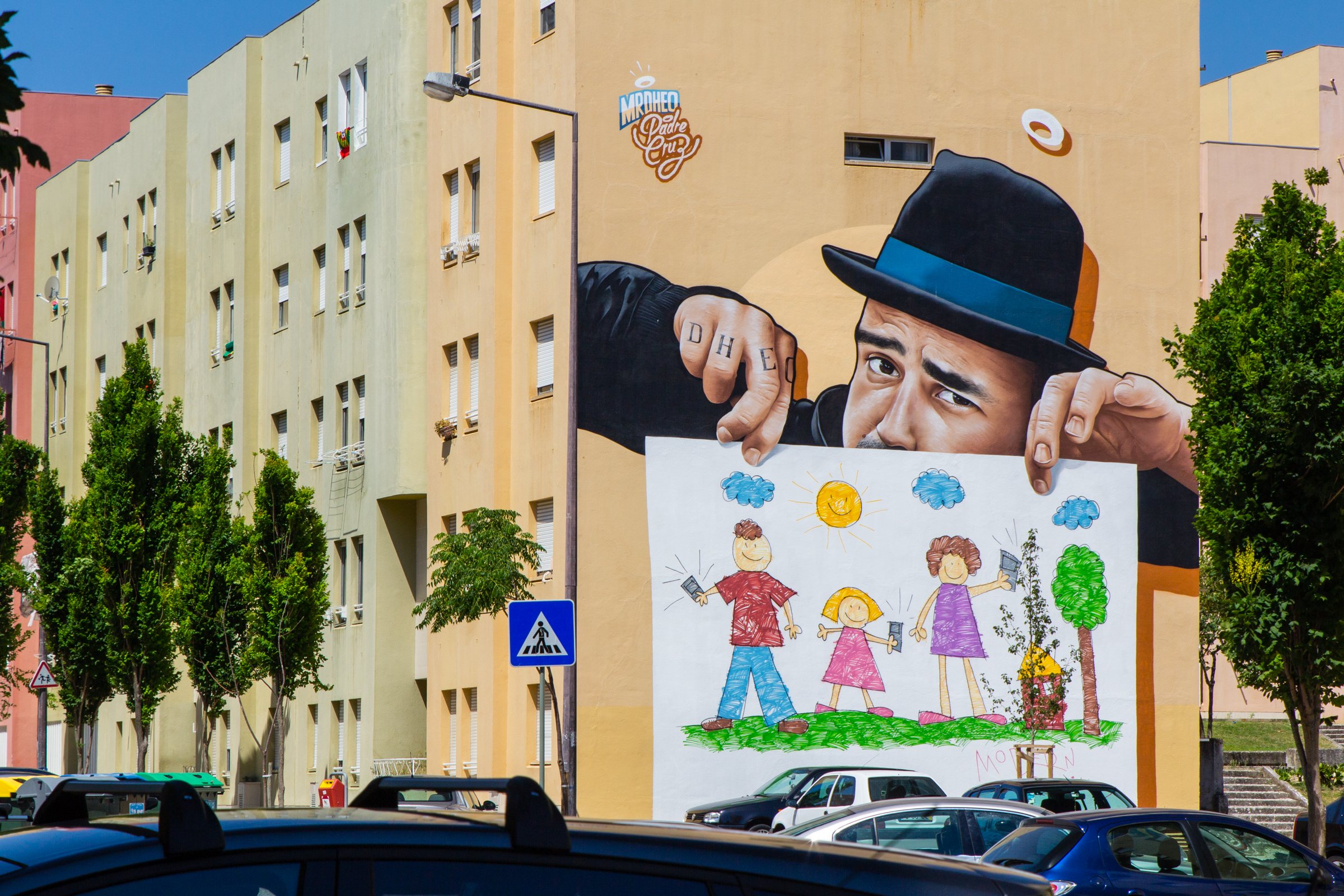
Final Thoughts
Portugal’s innovative street art scene is constantly evolving, challenging beliefs while also honoring tradition. With so many old, decaying buildings in the country, Portugal is truly a street artist’s playground. The next time you’re in Lisbon or Porto, be sure to keep your eyes open for works by these gifted artists. It will be interesting to see what will be unveiled next.


